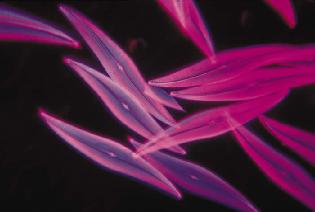By Laura Cummings
The word parasite holds many meanings – in ancient Greece, a professional dinner guest, and in modern times, a greedy person. Mark Forbes, an associate biology professor at Carleton University, focuses on the most scientific type of parasite.
He studies how parasites can affect animal populations, in particular parasite-host stress interactions and deviations between ecology and behaviour. Forbes is also the Canada Research Chair in Ecological Parasitology/Wildlife Conservation.
One long-term goal he names is to comprehend how certain species develop the ability to resist parasites and pathogens. As well, Forbes hopes to create an outline for predicting changes in this resistance amongst and within different species.
“Parasites can be ecosystem engineers, changing how host populations live and how viable they can be,” he said in a previous interview. “Understanding their potential to effect changes across an entire species is similar to understanding how climate change is affecting the Earth.”
Some examples of Forbes’ past research with students and colleagues are wildlife conservation issues, the consequences of stress and parasitism on both individual animals and whole populations, and assessing how environmental stresses affect animals.
As well, Forbes has investigated the insect-parasite relationship, studied the development of polymorphism in insects and explored the world of predators in inter-tidal ecosystems.
“Not all parasites are created equal. Some are very important because they infect key species, the ones that can determine how ecosystems work,” he said. “Gauging those effects can determine conservation and commercial practices. It could help produce predictions for future policies.”
His laboratory uses mathematical modeling, new statistical techniques and both correlational and experimental methods to answer his research questions.
One topic the lab is currently looking into is why rare plant species are waning on Pelee Island, in southern Ontario. Other projects include how green frogs react to leech predators and parasites, and whether botflies are dangerous to kangaroo rats.
(Originally published on Carleton Research)
